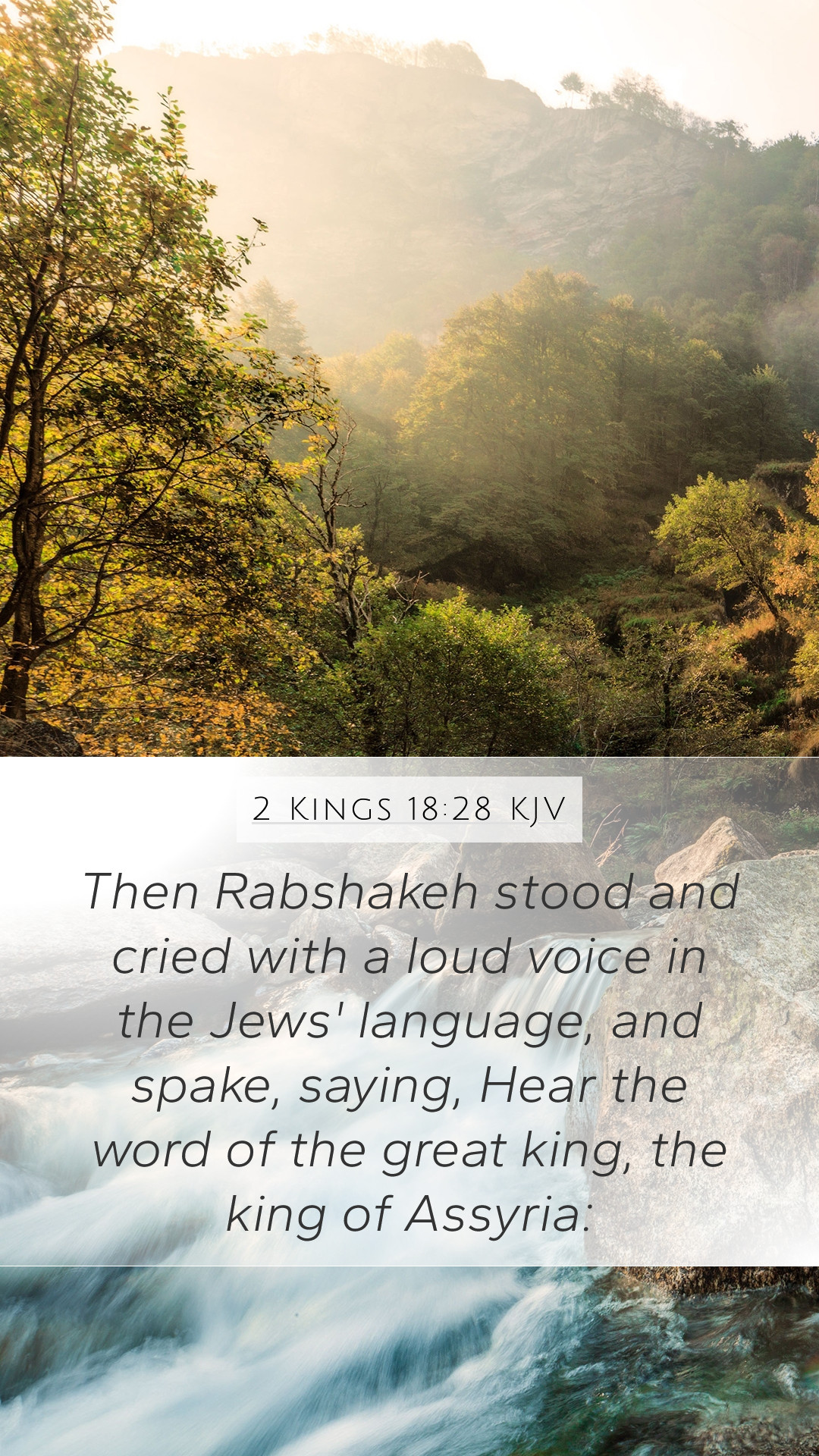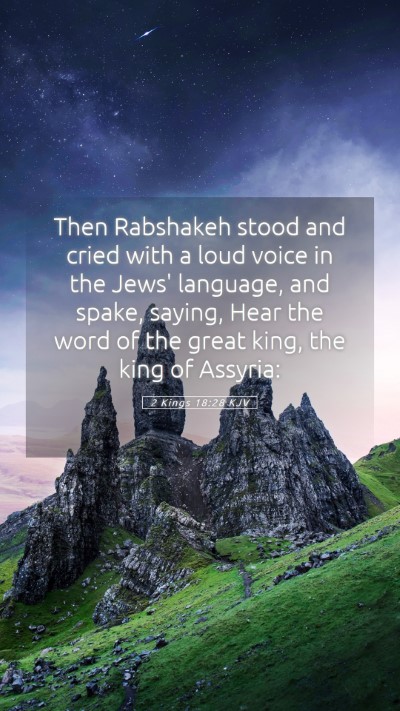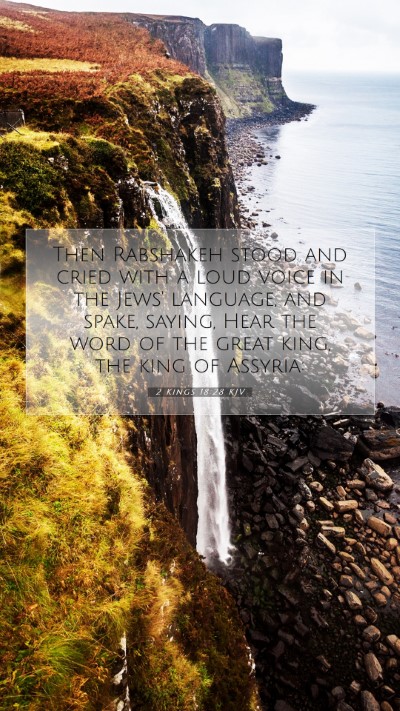Understanding 2 Kings 18:28: A Comprehensive Commentary
The verse 2 Kings 18:28 states: "Then the Rabshakeh stood and cried with a loud voice in the Jews' language, and said, Hear the word of the great king, the king of Assyria." This passage highlights the confrontation between the Assyrian emissary (Rabshakeh) and the people of Jerusalem, showcasing themes of authority, challenge, and faith. Below is a combined analysis of this scripture based on insights from prominent public domain commentaries.
Context and Historical Background
This verse is set within a significant historical context during the reign of King Hezekiah of Judah, a period characterized by intense political turmoil and foreign threats. The Assyrians, under King Sennacherib, were threatening Judah, which makes Rabshakeh's proclamation particularly dramatic.
- Matthew Henry's Commentary:
Henry describes Rabshakeh's voice as a tool of intimidation, meant to instill fear among the people. He suggests that such proclamations are often aimed at undermining the faith of the believers, and in this instance, Rabshakeh attempts to diminish the people’s trust in God by invoking the authority of the Assyrian king.
- Albert Barnes' Notes:
Barnes emphasizes the psychological aspect of this confrontation, noting that Rabshakeh spoke in the Jews' language to ensure that the words reached not only the leaders but also the common people, heightening their anxiety. This deliberate choice signifies a tactic to weaken their resolve through fear.
- Adam Clarke's Commentary:
Clarke provides a viewpoint on the character of Rabshakeh, noting that his military prowess is matched by his eloquence. Rabshakeh represents a deeper challenge beyond mere physical conquest; he represents a philosophical and spiritual challenge to faith in God amidst overwhelming foreign power.
Theological Implications
This verse, while primarily historical, carries profound theological implications. The loud proclamation signifies a pivotal moment in the spiritual conflict between the nations and God’s chosen people. By examining his approach, we gain understanding in the following areas:
- Challenge to Faith:
Rabshakeh's attempt to instill fear among the Jews reflects a recurring theme in scripture where external threats challenge internal belief systems. The moment symbolizes how challenges can lead believers to reconsider their faith commitments and the reliance on God.
- God's Sovereignty:
The narrative continues to affirm God’s sovereign control over the affairs of nations. The response of Hezekiah and ultimately God’s intervention in this crisis are critical points to note, illustrating that no earthly king's threats can ultimately stand against divine providence.
- The Role of Communication:
This moment underscores the power of speech and communication in the biblical narrative—words have the power to build up or tear down, to inspire hope or instill fear. Rabshakeh’s method serves as a reminder for believers today to discern the voices they heed.
Application to Daily Life
As we seek to apply the insights from 2 Kings 18:28 to our lives today, consider the following:
- Stand Firm in Faith:
In times of fear and uncertainty, this passage encourages believers to stand firm in their faith. The challenges we face may seem overwhelming, but God’s power remains unshaken.
- Discern Communication:
Evaluate the messages you receive daily. Are they leading you toward faith or fear? Understanding the source and intent behind communication is essential for spiritual health.
- Responding to Threats:
As Hezekiah did, seek God's guidance in the face of threats. Prayer and trust in God's sovereignty are key to overcoming discouragement and fear.
Related Bible Cross-References
- Isaiah 36:2-3: This passage parallels the encounter of Rabshakeh with the Jerusalem officials, providing additional insights into the context of this biblical episode.
- 2 Kings 19:1-7: The response of Hezekiah to Rabshakeh’s threats is documented here, showcasing the contrast between earthly power and divine assistance.
- Isaiah 37:14-20: This segment includes Hezekiah’s prayer for deliverance against the Assyrians, illuminating the faith-filled response to Rabshakeh's intimidation.
Conclusion
2 Kings 18:28 stands as a powerful testament to the spiritual and psychological warfare faced by the people of God. Through comprehensive commentary and understanding of its context, believers can gain profound insights into their own struggles and the mechanisms of faith in the face of adversity.
For further study, consider engaging with Bible study groups, utilizing online Bible study resources, or participating in guided Bible study lessons to deepen your understanding of such impactful scripture.


